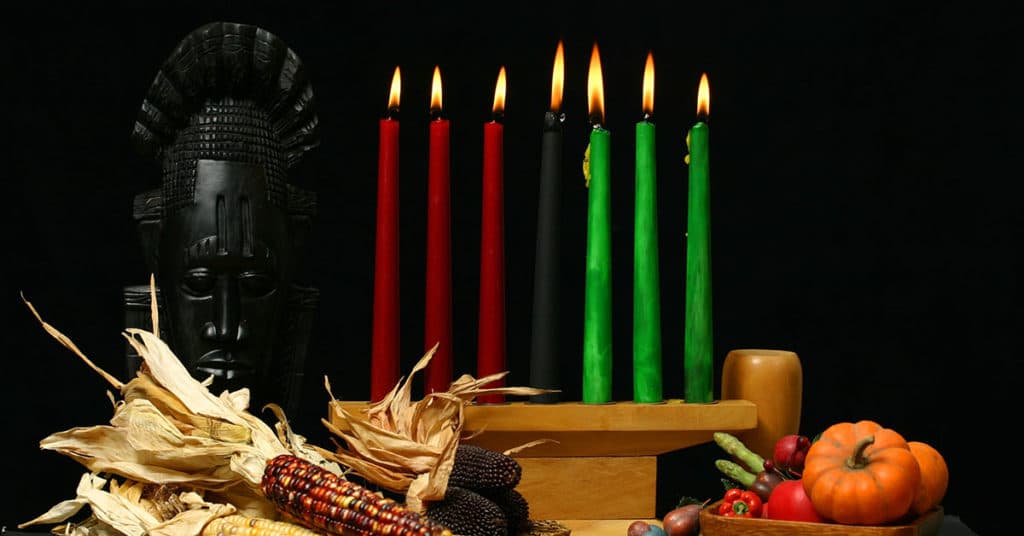Kwanzaa NYC is an African American holiday tradition that was founded in New York City in the 1960s. It celebrates seven principles of our communal African heritage on seven days from December 26 to New Year’s Day, January 1 (which is also Haitian Independence Day, and the anniversary of the Emancipation Proclamation).
Kwanzaa NYC 2023

At the Kwanzaa: A Regeneration Celebration, Abdel R. Salaam’s Forces of Nature Dance Company and friends celebrate at the Apollo Theater in Harlem on Friday, December 30, 2023 at 2pm and 7:30pm. From $25. apollotheater.org 🇺🇸
Kwanzaa Origins
The tradition was founded by activist Dr. Maulana Karenga, PhD in 1966. Today, families who observe Kwanzaa often do so in addition to Christmas.
The seven principles and seven day celebration, may be a play on the Seven African Powers, a Yoruba concept based on the most beloved Orishas. There are also similarities with Hanukkah, the Jewish festival of light.
Kwanzaa reconnects us with traditions that were stripped from our ancestors. It is an opportunity to recover and celebrate our traditions, our selves. The West African concept of Sankofa teaches that, “It is not wrong to go back for that which you have forgotten.”
Even if you don’t consider yourself part of the African Diaspora, Kwanzaa has something to offer you too. These are principles of humanity, so if you are human, there is something here for you.
Kwanzaa Traditions
The daily Kwanzaa greeting is “Habari Gani?” which is Swahili for “How are you?”
The language of Kwanzaa is based on Swahili, the East African Bantu language. Swahili has Arabic influences from the traders who used to work the coasts of Africa and the Africa-India trade. The Swahili-Arab connection is obvious in the Swahili “shukrani” (thank you) which is similar to “shukria” or thank you in Urdu, the language of Muslim Pakistan.
The Seven Principles
- Umoja ~ Unity
- Kujichagulia ~ Self-Determination
- Ujima ~ Collective Work and Responsibility
- Ujamaa ~ Cooperative Economics
- Nia ~ Purpose
- Kuumba ~ Creativity
- Imani ~ Faith
Kwanzaa Symbols
- The Mkeka is the mat on which other symbols are placed.
- The Kinara is a seven-candle candelabra.
- The Mishumaa Saba are the seven candles.
- Mazao are the African crops.
- Mahindi is corn. Ears of corn represent children.
- The Kikombe cha Umoja is the unity cup.
- Zawadi are gifts.
The Meaning of January 1
Kwanzaa ends on January 1, a day that has special meaning. It is Haitian Independence Day (1804). Haitians are the only people in history to free themselves and found a nation. By working together, Creoles and Africans changed the world.
Haiti remains the most culturally African country in the Americas. It is the root of a lot of Caribbean and African American culture.
The Haitian Revolution caused a diaspora throughout the Caribbean, including to New Orleans. By 1810, half of New Orleans was Haitian Diaspora. “Creole” in the Caribbean is code for Haitian Diaspora. Nobody talks about it, but we notice many Haitian influences in Puerto Rico. Looking at New Orleans culture from the Caribbean, it’s obvious how similar we are.
